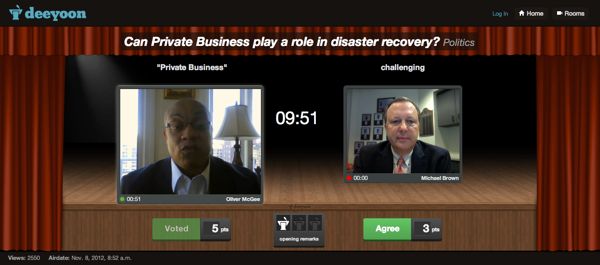The future of the flame war

Anonymity serves an essential purpose; it allows us to speak without fear of persecution. But two-way anonymous communications are inherently antisocial, and are often counterproductive when trying to establish a certain level of discourse. This is the root of the comments section dilemma, and an issue online news sites like BetaNews think about quite a bit. We want you to be able to speak freely. We hate having to censor anything, but we also want civilized conversation.
Text-only communication is viewed as an "impoverished" form of social exchange, lacking all of the nonverbal nuances that help us share information on a deeper, more human level, and anonymous text-only communications are even weaker, stripping out most of the ethos of the speaker.
If we stick to old school communications theory, all that you have in anonymous text are verbal pleas of logic or emotion, or simple nonsense. Sounds like a YouTube comment section, doesn't it?
Last Summer, Google continued its "war on anonymity" by prompting YouTube users to link their real-life names from Google+ to their YouTube profiles. Unlike Google+, which forbids the use of pseudonyms, YouTube users still have the option to remain anonymous. However, Google seems acutely aware that we have all said some things anonymously that we'd be embarrassed to associate with our name and face. Therefore, it gives users the ability to erase their anonymous transgressions if they decide to use their real name.
"Maybe you posted a few things way back (all those 'I love you Biebs!!' comments?) that you’d rather not associate with publicly. By clicking 'Review my content,' you can see every video, comment or playlist you’ve ever posted, and decide whether you want it associated with your full name before making the change," the June YouTube blog post said.
While YouTube has fostered what is arguably the Internet's lowest form of communication (The YouTube comment), it has also progressed to include the Video Response, where users film themselves giving a response to a particular video. While typically bereft of any real value, these responses seem to exist purely to provide nonverbal cues.
A new service Deeyoon takes commentary to the next level, into the realm of the live, face-to-face, moderated human discussion. Deeyoon has a standalone site, and also a plugin that allows its users to create live debates in articles published on other sites. It is more of an intense debate than intensedebate.
Deeyoon CEO and Founder Joe Kalfa said he started Deeyoon after seeing the heated arguments in the comments section of YouTube. He thought there had to be a better way for people to communicate their passions than through text comments or video responses.
"If you look at some of the comments on YouTube, it gets pretty crazy, but that's not to say that two people disagreeing on an issue of any kind cannot become uncivil as well. It's not absolutely preventable," Kalfa told Betanews this week. "It's just when it's two people face-to-face arguing on a topic, chances are it'll be a lot more civil than not. We want it to be a site for everybody, and we don't want it to get out of control."
Deeyoon gives people a place to take a stance on an issue and an equal amount of time for both sides to voice their opinion. The service even offers a plug-in that gives people the ability to open live video debates in the comment section of news articles or blog posts. Users can debate in their own skin in the forum where they are most familiar.
"It's an inherently viral product," Kalfa told BetaNews. "If someone's debating about something they're passionate about and they're having a good debate, chances are they'll share it with people who share their interest and belief system. It happens on both sides of the debate and keeps the site going and growing."
So with rich verbal and nonverbal communication, a potential for viral sharing, and some big announcements coming in the near future, Deeyoon might be the future of the comments section.
